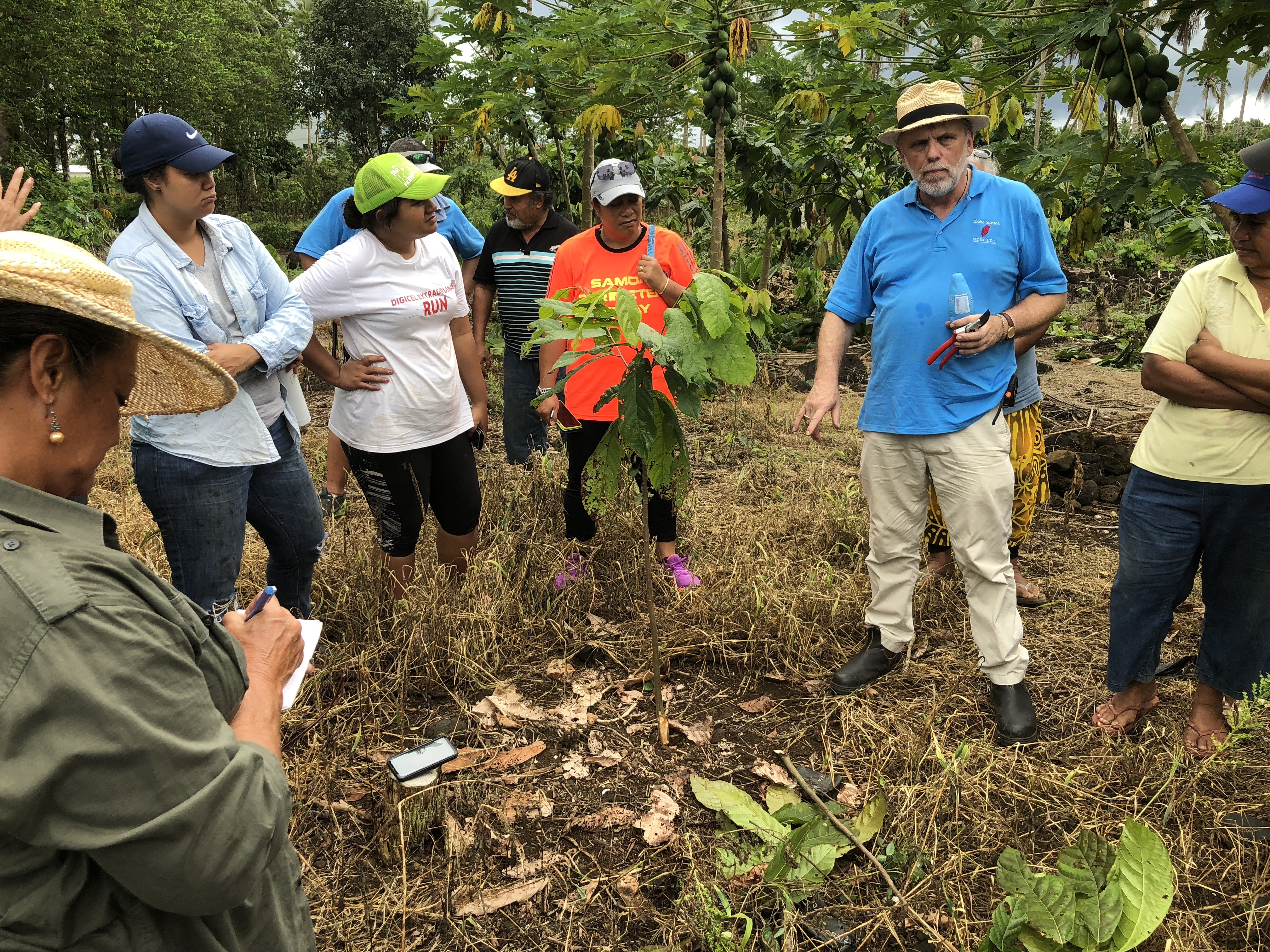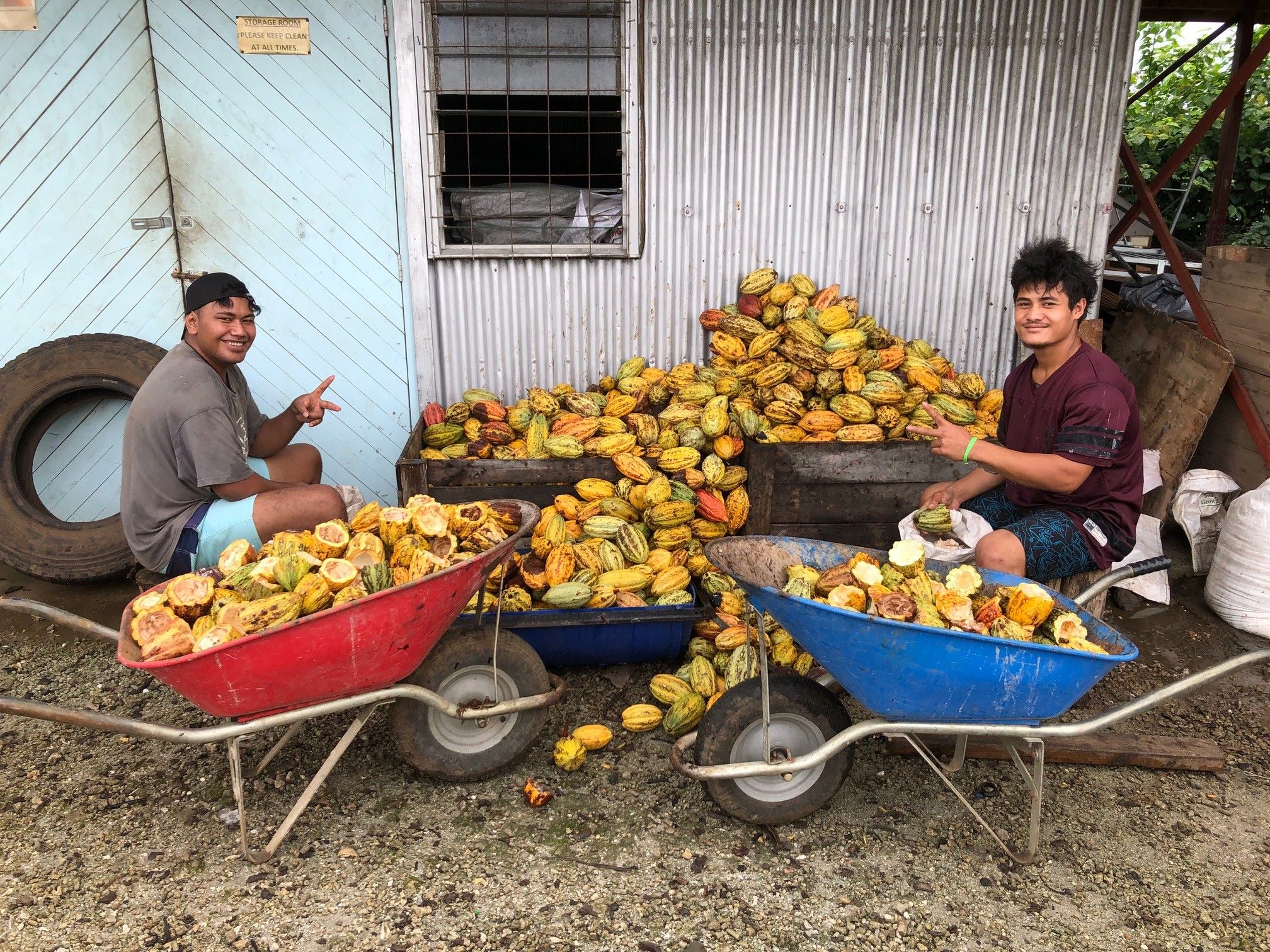Fresh Produce Knowledge
Knowledge Defined
Have you ever tried to define the meaning of knowledge? A helpful exercise before getting to the nitty-gritty of Fresh Produce Knowledge.
Naturally, Wikipedia has a crack at this, claiming knowledge to be "an awareness of facts, a familiarity with individuals and situations, or a practical skill." The Cambridge Dictionary takes a more complex approach. One would need to set ten minutes aside, just to take in what the editors have come up with. Their definition is far too mechanical for me. Here is the link for readers who want to check this out for themselves.
Personally, I prefer to go with the authors of an article entitled The Elusive Definition of Knowledge, who state that:
"Knowledge is an abstract concept without any reference to the tangible world. It is a very powerful concept, yet it has no clear definition so far. From the Greek philosophers up to present experts in knowledge management, people tried to define knowledge but the results are still very fuzzy."
The article also introduces, "a new paradigm of metaphorical thinking based on the knowledge energy. This metaphor opens new opportunities for understanding knowledge as a multi-field paradigm composed of the rational, emotional, and spiritual knowledge fields."
Heavy going, I agree, but I take these learnings from the article I have referenced above:
- Knowledge is what we want it to be and what we need it to be.
- Some knowledge is relevant to all industries, regardless of type, level of sophistication or location.
- Other knowledge can and needs to be very specific and is therefore often very segmented.
- Knowledge is generated through both conscious and sub-conscious pathways.
- Knowledge acquisition can occur through structured activity and through ad hoc experiences.
- Knowledge is never complete and knowledge acquisition is therefore never truly concluded.
Knowledge of the Fresh Produce System
The Fresh Produce System is complex and consists of a multitude of sub-systems. We should therefore not be surprised that Knowledge related to, and essential for, the Fresh Produce System is not only also complex, but most certainly segmented.
Knowledge generation and acquisition is therefore likely to be initially sub-system based, rather than focused on the entire system.
Fresh Produce Food Safety, for example, is such a sub-system, as are Fresh Produce Logistics, as well as Fresh Produce Standards - and the list goes on. Knowledge related to these sub-systems is comprehensive and layered, with one of the obvious questions being, "Who needs to know exactly what, and when?"
One certainty exists, however; namely, that the complexity of the Fresh Produce System requires both broad and deep knowledge levels at every System step and layer. It is therefore impossible to hold knowledge tightly under the control of a select few individuals. The optimal Fresh Produce System across all its categories requires appropriately sized and shaped parcels of knowledge to be available to, and transferable by, numerous System participants, at a pace that is aligned with that of the perishable fruit & vegetables as they move through the various supply chains available.
Fresh Produce Knowledge
Some of the Fresh Produce sub-Systems are more obvious and /or easier to understand than others. I am briefly introducing two sub-systems here to illustrate the points I am trying to make. And to avoid having to make a choice about using either a vegetable or fruit crop as exemplar, I have opted for illustrating my points with the help of the Samoan cocoa supply chain, because the underlying principles are the same.
Fresh Produce Production System

Commercial fresh produce production is a business and not a life style choice, regardless of whether:
- vegetables or fruit are grown.
- outdoor or covered crop production is practiced.
- produce is grown in the ground or on bushes, vines or trees.
There will, of course, be differences in approach based on the nature of a crop, but the common themes include best practice, learning, experience, patience and extension.
The topic of discussion in the above photo are the pruning and plant husbandry requirements for young cocoa trees.
Fresh Produce Post-Harvest System

Harvesting a crop is an immensely satisfying feeling, but it is is only the beginning of ensuring that consumer who are offered the harvested fruits or vegetables will indeed choose to make a purchase.
Depending on the crop and the nature of that crop's supply chain, it may days or weeks before the harvested produce makes an appearance in front of discerning potential buyers.
Post-harvest systems are therefore crop and supply chain targeted to ensure that the harvested produce is managed post-harvest in the most appropriate way to achieve a sale at a realistic return, relying on fresh produce knowledge that is crop specific.
The harvested coca pods in the above photo are undergoing a fairly unsophisticated post-harvest process. The pods are manually cracked open, so that the cocoa beans and the sticky white liquid that has protected the beans during their development, the mucilage, can be removed and prepared for the next post-harvest step. In the case of cocoa that is the fermentation process.

The pursuit of Knowledge is considered essential by all and sundry across all industries, but the jury is out on what Knowledge actually is, how it can be acquired and the way acquired knowledge ought to be used to optimise practical outcomes.
In this section of the website, we will therefore attempt to answer some of theses questions - and you might be surprised at the approach we intend to take. So pin back your ears and enjoy the ride.
And here is the first handy hint: there is a connection between gaining Knowledge and giving matters some serious thought!